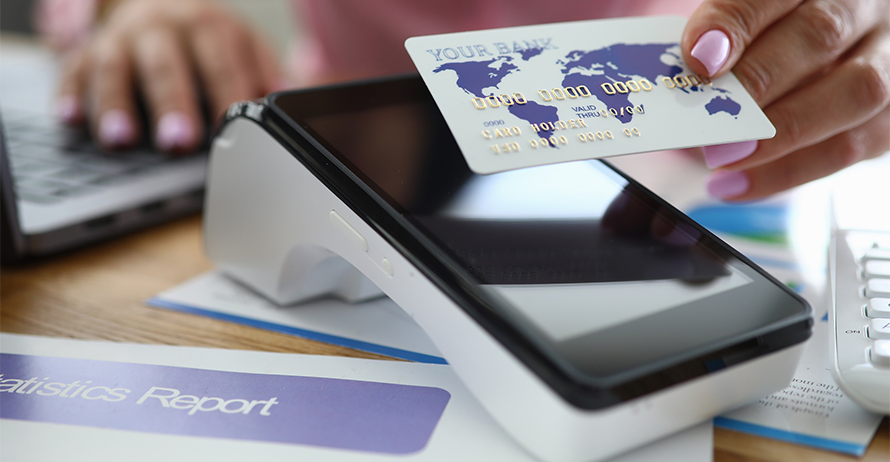

Technologies are transforming the nature of work and its environment. The fact that level of input Technology has on our daily activities and life is growing in tremendous ways.
Whether we feel it and act to it, or just stay passive such input would occur.
How many of us were skeptical about online shopping and using our own credit cards as a method of payment before the COVID-19 pandemic? and how many were pushed to experience it during the pandemic and yet found it to be easy and safe?
This is just a small example of such an effect on us as a consumer and how our behavior as consumers are changing.
Such acceleration of adaptation to the new technology by the consumers has put most of the organizations in serious challenges toward their abilities to adapt and respond at the same speed as what is happening out within their consumers and competitors.
These challenges can become threats as well if they have not been resolved properly. This may lead to the loss of the clients and the business associated with them.
This issue leads us to a serious topic:
Ability to define and anticipate the consumer’s requirements and engage with them to ensure the retention and sustainability of the business within the work environment.
The question here is how can we be upfront in our thinking and what kind of skills do we need to learn that can equip us with such abilities?
Based on many studies and research that has been done, we can define some of these practices that would help us to acquire such capabilities.
1-To look ahead when defining critical rules.
We need to define what are the critical rules that are contributing to the implementation of our strategy. We need to rethink those needed skills with an increasing tech-enabled future and develop these tools in the current workforce. This may result in changing roles of people as we start to adapt to technology.
2-Ability to re-assess the nature of work and the needed skills and capabilities.
This will lead to identifying our assumptions of success of our people to perform within the new nature of work and accordingly to start building such capabilities within our people.
3-To focus on management development.
It will be needed to keep the development of management for re-skilling to equip them with the requirements of the new roles usually those supported by new technology.
Studies and research show that more than 60% of companies’ future roles can be filled with current employees, assuming that adequate programs are in place.
4-It is most important to get the people engaged with the technology.
The reason is that many of these technologies are AI-enabled processes.
The more we are shifting to the processes that can be done by machine, it means that those tasks previously used to be done by the employees will be replaced by the machine. People would need to understand the new roles to align themselves with the results generated from the machine.
We would like to leverage the technology with the alignment of the people to result in superior service to our clients and retain their loyalty.
5-We need to anticipate what the future managers would need in a work environment.
The future managers would be looking for a workplace with a real value proposition and this is different than what used to be earlier in the past.
As per the US Bureau of labor statistics by 2030 Millennials will make up 75% of the workforce.
This generation who are tech-savvy would need to have flexible schedules, diversity in the workplace, engagement, autonomy, and a meaningful connection with their employers.
This means we need to allow focus on factors that are most critical to retaining and inspiring our employees: A culture of inclusion, a workplace that makes getting things done fast and easy, and a top-notch rewarding system that evaluates contribution and productivity.
In conclusion, we need to agree that technology is fundamentally changing the nature of work. This means that to secure our future with such changing environment in the workplace driven by the latest technology, we need to act today to create an environment that inspires the people within the organization and allows them to excel with their future talents and abilities. Such an approach would allow us to retain our talented people and attract future stars to the organization in order to win the future game.
Osama Al Rahma

Popular BLOG

August 11, 2023
Building Bridges: Unleashing the Potential of Cross-Border Payment Interoperability

July 24, 2023
Knowledge Engineering & Neural Network- A Hybrid Synergy

July 7, 2023
Emerging Cyber Threats Against the Financial Industry: Protecting Critical Assets in the Digital Age

June 2, 2023
Five Decision-Making Models to Maximise Success

April 27, 2023
Real-Time Risk Management Through Audit, Risk & Compliance: The Future Of Corporate Governance

March 25, 2023
Resilient Leadership

November 4, 2022
Compliance Risk Management and Technology

November 4, 2022
9 Success Stories of Intrapreneurship

September 16, 2022
Impact of UAE Central Bank’s New Consumer Protection Regulations and its accompanying Standards

September 16, 2022











